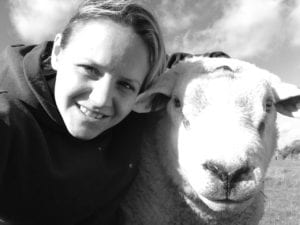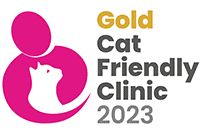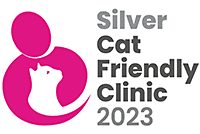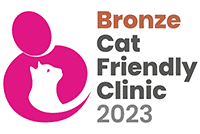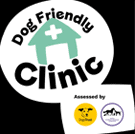Could you please introduce yourself and tell us a little about your career to date?
My name is Verity, and I am one the veterinary surgeons working at Village Vet Longstanton. I qualified from Nottingham Vet School in 2011, and from there I worked in a mixed practice for about 18 months, enjoying the challenges faced by a mixed species vet on a daily basis. I decided to move into a new role when I joined Village Vet and became one of the float vets within the Cambridge area. The was a fantastic role to have, as it meant I was able to experience working within the range of different practices that make up Village Vet – everything from sole charge in smaller practices, to team work within the busy hospitals, to emergency work throughout the night. When a permanent position became available in the Longstanton practice, I jumped at the opportunity, as I had learnt that general practice veterinary work was where my heart belonged, and the team in this particular practice had always made me feel so welcome!
What challenges you the most about being a vet?
I think the emotions involved with veterinary work are the most challenging aspect of being a vet. You have your own emotions regarding the cases you see, which can be a real rollercoaster; but then you are also exposed to the range of emotions experienced by your clients. Sometimes emotions can cause differences of opinions between the clients and their own family, but also between ourselves and the clients. It is how you cope with these challenging emotional times that dictate the outcome in many cases.
What excites you most about veterinary medicine?
I guess the most exciting aspect of veterinary medicine is that we actually have the power, skills and ability to change the lives of our clients and their pets. We can provide so much joy into our client’s lives when a positive outcome is possible, but we are also able to provide empathy and compassion when the outcome is perhaps not so positive.
Why did you choose Village Vet?
I was attracted to Village Vet initially as I had heard of the good reputation it had, from both staff and clients. I was excited to learn that the company also provided 24-hour emergency care, and moving from a practice that covered its own on-call, I felt that a separate emergency night team was a valuable asset. I also felt that the company was striving to continue to move forward, with the new hospitals being built and digital x-ray being introduced into many practices for example.
At your practice, what are some of the most common preventable ailments that you come across and can you provide us 3 top tips in relation to them for pet parents?
1. Obesity. This has got to be the most common preventable ailment I see on a day-to-day basis – in dogs AND cats. I feel for the clients of obese animals, as it is only from love and care that the animals have been allowed to get to this size. The problem is, it is much harder to get the excess weight OFF then it was to allow it to be put on in the first place. Top tip: check the manufacturer’s dietary guidelines on the feed packaging, and then weigh out the food regularly to ensure you are not starting to accidentally overfeed. Follow this up by weighing your pet free of charge at the practice at least every 3-6 months, to ensure their weight is being maintained at an appropriate level.
2. Dental disease. This is a common preventable ailment that I see for all sorts of reasons – sometimes this is detected when the animal visits for their annual health check and vaccination; sometimes the client presents the animal for a dental check as they have concerns regarding their eating or bad breath. Usually, by the time we detect a problem the animal requires a general anaesthetic, scale & polish, and possibly even extractions if the dental disease has progressed.
Top tip: as soon as you bring your pet home, start thinking about their dental hygiene. The gold standard approach is to brush their teeth daily – just like we do! I completely understand however that not all pets will tolerate this approach! But there are many other options, from dental chews to water additives, that may all help slow down (not prevent!) dental disease from developing. I often advise clients to pop in a free dental check and to discuss the options available.
3. Fleas. At certain times of the year, I frequently have consultations with itchy pets and identify live fleas on the animals. Fleas can cause misery to your pets, but they are completely preventable with the use of appropriate products.
Top tip: start your cats and dogs onto regular flea prevention – this could be in the form of a spot-on pipette, tablet, injection or even a collar. Consider treating your home with a household spray if you do encounter a problem with fleas, as well as treating your pet. It is easier to start a treatment regime and continue with it, rather than live through a flea infestation.
What advice would you give to future veterinarians who are thinking about a career in veterinary medicine?
I would advise that it is a very enjoyable profession to be part of, but be prepared for your emotions to be on a permanent rollercoaster! I would encourage lots of work experience first so you can be certain that you want to embark on this journey, as it is a challenging time at vet school, followed by a nerve-wracking first day in the job.
It is important to find out that this is not just a job that you leave at 5 pm every day, it becomes a way of life, and it is important that you have the strength of character to cope with that fact.






